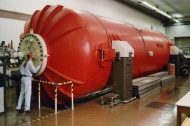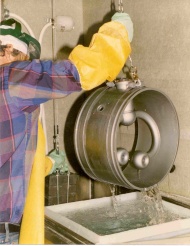Difference between revisions of "Main Page"
m (link to Phy 445 stuff) |
m (spelling) |
||
| Line 24: | Line 24: | ||
The main goals of CASE are: | The main goals of CASE are: | ||
* To train scientists and engineers with the aim of advancing the field of accelerator science; | * To train scientists and engineers with the aim of advancing the field of accelerator science; | ||
| − | [[PastCourses| Courses taught by CASE Faculty]] | + | [[PastCourses| Courses taught by CASE Faculty]] including [[Lab Manuals | PHY 445/515 Fall 2010]] |
* To develop a unique program of educational outreach that will provide broad access to a research accelerator; and, | * To develop a unique program of educational outreach that will provide broad access to a research accelerator; and, | ||
* To attract Federal and industrial funding for an expanding interdisciplinary research and education program that utilizes accelerators. | * To attract Federal and industrial funding for an expanding interdisciplinary research and education program that utilizes accelerators. | ||
Revision as of 13:14, 6 September 2010
Center for Accelerator Science and Education |
|
The Center for Accelerator Science and Education (CASE) will pursue cutting edge accelerator science and R&D, training of next generation accelerator scientists - graduate and post doctoral – through courses, laboratory and experiments on accelerators. Undergraduate opportunities will play a significant goal of attracting students to the graduate program through introduction to accelerator courses, accelerator laboratory work and summer research opportunities at BNL. The proposed educational program will start with a short term abbreviated educational program of undergraduate, graduate and R&D that will evolve over time. |
GoalsThe main goals of CASE are:
Courses taught by CASE Faculty including PHY 445/515 Fall 2010
The development of CASE capitalizes on resources at both institutions:
|
The Collaboration
|
Research OpportunitiesCASE faculty are involved in many exciting projects. Please contact us for more information.
|
Past ProjectsFirst on its own and then as an injector to the Superconducting Heavy Ion Linac, FN-8 was used for Nuclear Physics research at Stony Brook for 40 years.
The Stony Brook Superconducting Heavy Ion Linac was commissioned in 1983 and used until 2007. Superconducting RF research at Stony Brook led to the development of the SQWR, the SRFQ and the CPM based SRF controller, among other achievements. From July 26-30, 2010, CASE held a Workshop in accelerator physics for high school teachers and students.
|

